GROOMS in Ireland are currently being paid on average between €15-18,000 per year, according to Caroline Lane, managing director of equestrian recruitment company Equipeople.
On the opening day of the 2017 Dublin Horse Show The Irish Field led the way in recognising the groom’s contribution to Irish equestrian sport. The establishment of an association and push for better pay scales with a defined career path for grooms in the industry was the main message during the briefing, held on the opening morning of the biggest week in the equestrian calendar.
Speaking about the need to recognise their contribution to the sport, Lane said: “Grooms are professionals and I think they should be recognised as that, and there should be levels, for example a junior groom, senior groom and then moving on to a yard manager. A defined career path would be very attractive and very popular among staff.”

Bernard Caldwell, chairman of the Irish Stable Staff Association for racing, echoed the need for a tiered working environment. “There should be levels for different wages. Young people nowadays are educated and they are aware of what’s happening. They love their horses, but they love to get paid, they want to get a mortgage, buy a car, go on holidays and so on,” Caldwell said.
“Insurance is a big thing nowadays, (in racing) every trainer has to have insurance on his staff, so that’s a big help. We are trying to get a pension scheme going the last four years, we are nearly there with it, it’s taken a long time, but that money has to come from somewhere,” he added.
Horse Sport Ireland’s new chief executive Ronan Murphy, only in the role some 24 hours, was positive that the issue was something the national federation are keen to push on with.
He began by saying: “I would just like to commend The Irish Field for championing this this morning, I think it’s overdue and something that we have on our radar since the HSI international marking symposium back in March. It’s absolutely a key corner stone of the industry.”
Also mentioning the need for further training and a structured career path, Murphy added: “The point about training and career path – that is absolutely essential. In the racing world we had some sort of career path with head lads and they have a progression through the ranks, but we need a defined career path for the people who work as grooms, so they can see this isn’t just a job for somebody who wants a pastime, that this is a serious career path that can give them a livelihood that’s sustainable.
“We have to adhere to the legislative framework, that’s critical. We have work to do on all the various acts and working with the workplace relations commission is important in this sphere.”
Gerry Mullins, chair of HSI’s high performance show jumping committee, supported the move and referenced the ample opportunities in Europe and the USA for grooms to further their careers.
Positively, the chairman of the RDS Equestrian Committee, Angus McDonnell, made it clear that this initiative is something the RDS would be keen to get involved in.
“I know that the RDS would definitely like to be involved in it, it’s an area we think about a lot and we are doing various training schemes now, particularity for course builders and things like that, and anything we can do to push this along we certainly will,” McDonnell said.
OBEYING THE LAW
Lane emphasised the import-ance of equestrian employers in Ireland obeying the work relation rules, and looking at their own business model to ensure grooms are properly remunerated.
“Employers absolutely have to start obeying the law, that’s the place we have to start. I think we need to start with the riders and with the grooms, so that the grooms are getting basic employment law.”
She continued: “What I can’t understand is why horse people feel that they are exempt from the law? It happens an unbelievable amount, probably in our office at least two or three times a week, we are having people say they are not going to pay minimum wage, give holiday pay, do basic employment law.

Discussing the average wage of grooms, Lane added: “We have done a lot abroad and we could be talking €100,000 in the Middle East, but that is outside the norm of course – you are talking maybe €15-18,000 in Ireland. I really believe that if a rider or a centre hasn’t got the business end of what they are doing, their salary and expenses right, well then their business model is wrong.”
Co Monaghan international show jumper Clem McMahon accepted the point but raised the issue about government funding. “It’s much easier for the racing industry with the amount of support they get from the government.
“A €100,000 race is not out of the norm where like in show jumping, this week is the only week of the year with decent prize money. So it comes back to the government as well, there is a lot of people employed in this industry but the support isn’t coming through from the government, we need a little bit more help.”

SURVEY RESULTS:
Grooms in racing yards are part of the Irish Stable Staff Association, should there be a similar Association to represent the interests of grooms working in the Irish Sport Horse equestrian industry?
YES – 97%
NO – 3%
What are the biggest challenges facing grooms working in Irish equestrian sport?
Wages – 82.75%
Long hours – 68.96%
Lack of opportunities to further your education and skill set – 63.63%
Lack of time off – 62.38%
Other – 21%
WHAT THEY SAID:
“In the racing world we had some sort of career path with head lads and they have a progression through the ranks, but we need a defined career path for the people who work as grooms.” Ronan Murphy, CEO Horse Sport Ireland
“I know that the RDS would definitely like to be involved in it, it’s an area we think about a lot and we are doing various training schemes now, particularity for course builders and things like that, and anything we can do to push this along we certainly will.” Angus McDonnell, RDS
“Employers absolutely have to start obeying the law, that’s the place we have to start. I think we need to start with the riders and with the grooms, so that the grooms are getting basic employment law.” Caroline Lane, Equipeople
“It’s much easier for the racing industry with the amount of support they get from the government. A €100,000 race is not out of the norm where like in show jumping this week is the only week of the year with decent prize money.” Clem McMahon, international show jumper
“Young people nowadays are educated and they are aware of whats happening. They love their horses, but they love to get paid.” Bernard Cadwell, Irish Stable Staff Association
“I would say I’d like to see HSI getting involved in, perhaps we need to look at the training and the route, the organisation of grooms, but really starting to champion the role of the groom and how important it is.” Ronan Murphy


 This is a subscriber-only article
This is a subscriber-only article
 It looks like you're browsing in private mode
It looks like you're browsing in private mode




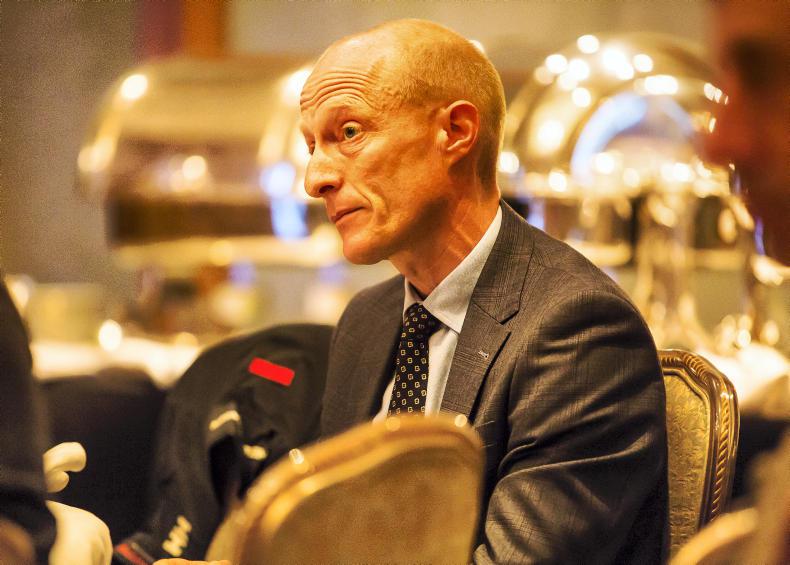
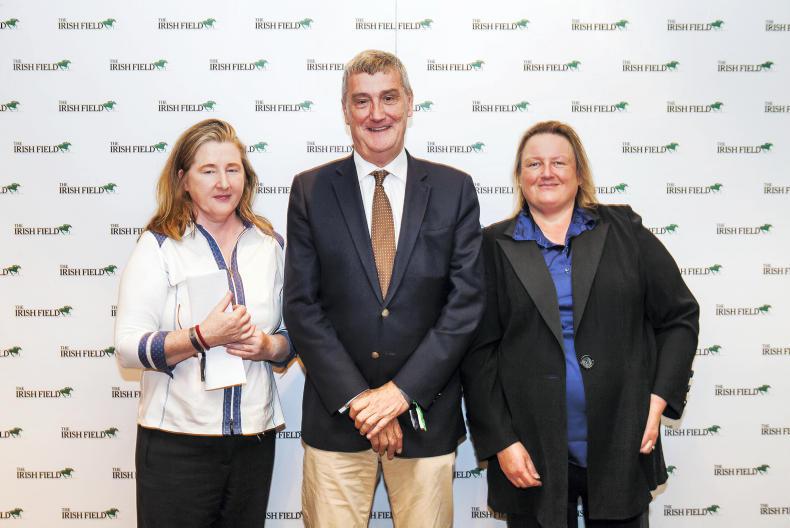
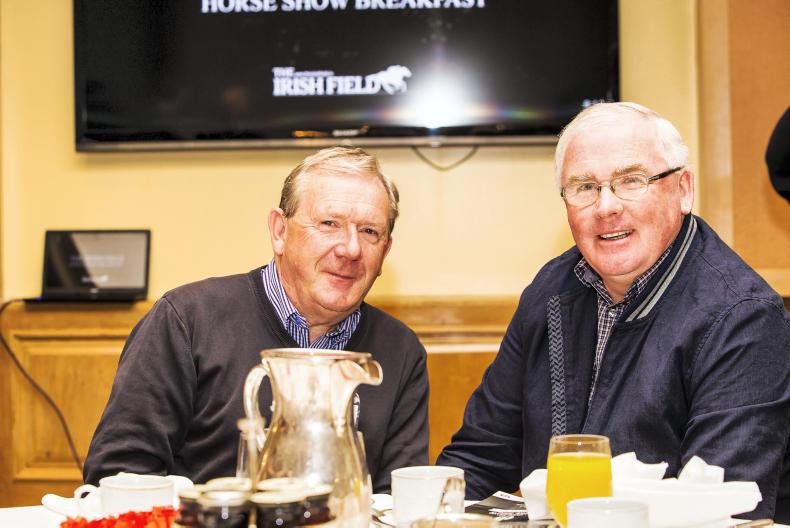
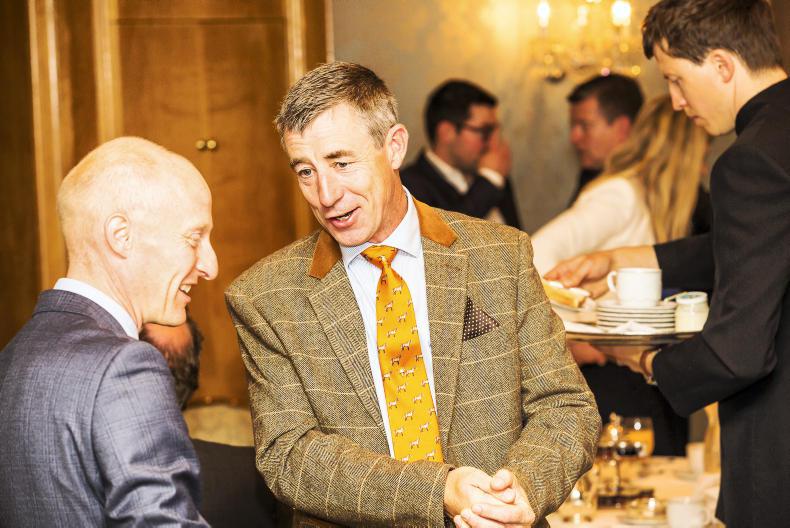
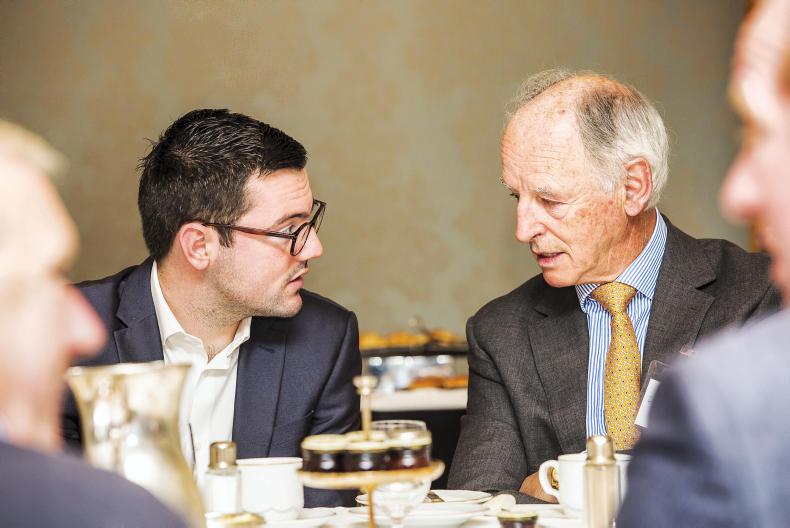

SHARING OPTIONS: